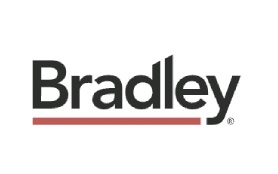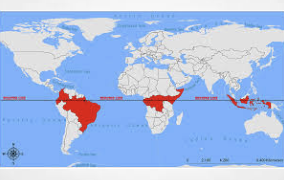While it appears likely that Tennessee will be the last Deep South state to legalize medical cannabis (as we wrote about here), it has always been a favorable state for the hemp industry. The Tennessee Legislature just came through for hemp operators again by passing an industry-friendly bill, SB0378/HB403, to regulate the production, distribution, and sale of products containing psychoactive, hemp-derived cannabinoids like delta-8 and delta-10 THC. This bill should provide a solid foundation for the continued growth of this industry sector by clarifying the legality of these products under Tennessee law and crowding out some of the less scrupulous operators in this space.
So, What Does SB0378/HB403 Require of Hemp Operators?
SB0378/HB403 passed the Tennessee Senate on May 2, 2023, and was sent to Gov. Bill Lee for his signature the next day. The bill defines “hemp-derived cannabinoid” as “a cannabinoid other than delta-9 tetrahydrocannabinol, or an isomer derived from such cannabinoid, that is derived from hemp in a concentration of more than [0.1%],” or a “hemp-derived product containing delta-9 tetrahydrocannabinol in a concentration of [0.3%] or less on a dry weight basis.” The bill further clarifies that delta-8 and delta-10 THC fit within the bill’s definition of “hemp-derived cannabinoids,” while cannabidiol (CBD), cannabinol (CBN), and other non-psychoactive cannabinoids do not.
The bill regulates psychoactive, hemp-derived cannabinoids in six primary ways. First, the bill requires that manufacturers and sellers of products containing hemp-derived cannabinoids obtain an appropriate license from the Tennessee Department of Agriculture (TDA) by the latest of commencement of business or January 1, 2024. The license must be renewed annually. Applicants must submit certain information, pay a fee, and consent to reasonable inspection of their facilities and sampling of their products. A person that is serving or has served a sentence for a drug-related felony in the last 10 years is not eligible for a license. Manufacturing, producing, or selling products containing hemp-derived cannabinoids without a valid license is a Class A misdemeanor and subjects the products to seizure and forfeiture.
Second, the bill imposes testing requirements, which take effect on July 1, 2024. Products containing hemp-derived cannabinoids must be tested for cannabinoids, heavy metals, microbials, mycotoxins, pesticides, and residual solvents. Operators must contract with a testing lab that is ISO 17025 accredited and registered with the Drug Enforcement Agency (DEA) to perform these tests, and must obtain a certificate of analysis for each batch of products tested.
Third, the bill imposes packaging and labeling requirements on products containing hemp-derived cannabinoids, which also take effect on July 1, 2024. Specifically, the bill requires labels to list an expiration date, active ingredients, a nutritional panel, a statement that the product is not approved for any medical use by the Food and Drug Administration (FDA), the total amount of the hemp-derived cannabinoid in the entire package (measured in milligrams), the product’s net weight, and a QR code that allows consumers to access testing and other product information. Further, for ingestible products, the label must include the amount of cannabinoid in each product serving (also measured in milligrams). The bill also prohibits labeling, advertising, or marketing these products using “characters or symbols known to appeal primarily to persons under [21], including, but not limited to, superheroes, comic book characters, video game characters, television show characters, movie characters, mythical creatures, and unicorns.”
Fourth, the bill introduces a 6% privilege tax on hemp-derived cannabinoid products when sold at retail establishments in Tennessee. Revenue from this new tax, which takes effect on July 1, 2023, will be allocated to the TDA to fund enforcement of the bill’s requirements.
Fifth, the bill prohibits the sale of these products to anyone under 21, and requires that hemp operators obtain proof of age at the point of sale. These requirements take effect on July 1, 2023.
Sixth, the bill restricts the locations for sales for hemp-derived cannabinoid products. Such products must be kept behind the counter of a retail establishment in an area inaccessible to a customer. The bill further prohibits distributing samples of such products on a public street, sidewalk, or park.
What Are the Takeaways?
SB0378/HB403 is another important step towards solidifying Tennessee’s position as a hemp powerhouse. By delaying the onset of its regulatory requirements, the bill provides Tennessee hemp operators with time to familiarize themselves with the bill and adjust their operations to come into compliance. As we’ve written before, many reputable operators already subject their products to rigorous testing for potency and safety, provide QR codes with certificates of analysis, accurately label their products, and age-gate purchases. Complying with the bill’s requirements may be a relatively light lift for these companies. Others will have much more work to do.
For those waiting for Tennessee to enact a medical cannabis program, could this bill be seen as a test run or first step? Maybe. New tax revenue is an important driver of the liberalization of cannabis policies across the Deep South. If this bill results in significant tax revenue for Tennessee, perhaps our Legislature will see this as an opportunity. Medical cannabis in Tennessee is inevitable, but those that have been holding their breath are starting to turn blue.


















